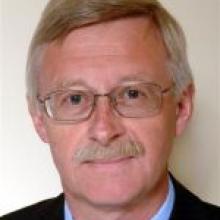
But amid the warnings came a reminder the period of tight financial times ahead was "spelled out in black and white" when decisions on the project were made.
The issue was raised at a council finance and strategy committee meeting on Monday, as councillors considered the Dunedin City Holdings Ltd (DCHL) statements of intent for the next financial year.
Yesterday, deputy mayor Chris Staynes said the concern councillors had was the companies were not always able to raise the dividends through profit, and had to borrow money to do so.
That meant DCHL was reducing the equity the shareholder - the Dunedin City Council - had in the business.
"We're effectively mortgaging the business to pay the city," Cr Staynes said.
As well, the high level of debt would mean the companies' ability to raise debt may be constrained.
"If Aurora Energy [for instance] wanted to purchase a power network, they may not be in a position to borrow the capital to do that," Cr Staynes said.
At the meeting, Cr Richard Thomson said he had no problem with trading companies borrowing, "as long as it is for generating revenue - not picking up council borrowing".
But Cr Andrew Noone responded the decisions made in the past had been based on the understanding that there were going to be some tight financial years in the future.
"We made those decisions knowingly," he said.
It was also important to remember borrowing for the council was only part of the story. The companies had borrowed and had grown "significantly" in the last 10 years.
Cr Noone accepted that that could be more difficult in the current situation.
Cr Paul Hudson, speaking in his role of chairman of the DCHL board, said the company would work with the council to deal with the challenges.
"We're all in the DCC family," he said.
Council finance and corporate support general manager Athol Stephens said yesterday the level of dividends required from the company was "a pretty tough call".
"On the other hand, if you look at the balance sheets, there are pretty solid cash flows.
"The companies will need to look critically at their cash flows."
The owner of DCHL, the council and its ratepayers, had asked the company to make paying the dividend a priority.
"If there is a business opportunity, it may have to wait or come second in line, unless the opportunity is such that it will provide cash flows. That's possible, too."
The companies would have to study any opportunity in the context of the expected priorities. All those issues were not new, he said.
"It's been spelled out in black and white."
The committee also voted for recommendations to explain, within the statement of intent, the mechanisms by which the companies and ratepayers would service stadium debt.
That had not changed from what had already been planned, Mr Stephens said.












